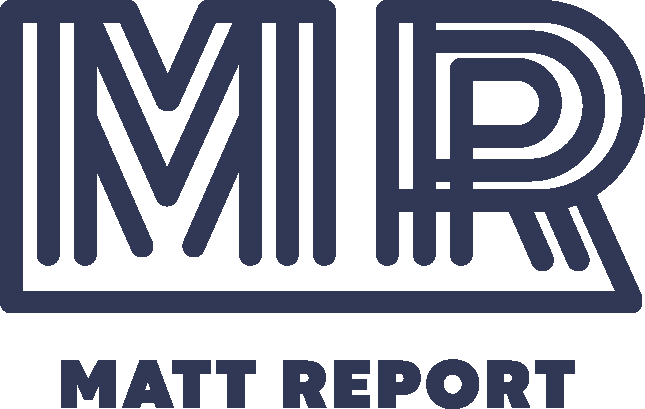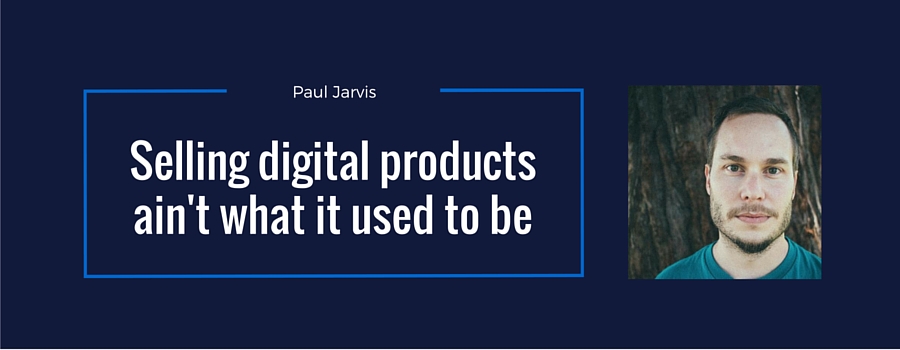What does being a freelancer mean to you?
In today’s episode, I’m joined by Paul Jarvis, or as I like to call him — the epitome of a freelancer. That is, if you define a freelancer to be one not only engaging in work for hire, but also creates product, has recurring revenue services, and staking claims in the hot software as a service market.
I can relate.
I’ve been running my own company for well over a decade, employ a small team, have hundreds of clients, thousands of product customers and still consider myself a freelancer. I say that because I am not married to one type of work. While it’s all relatively similar, web services meets digital products, I’m not against changing my direction at any given time and finding something that better serves my business goals. I don’t consider my work, a singular job.
Interview with Paul Jarvis
[soundcloud url=”https://api.soundcloud.com/tracks/275939306″ params=”color=0066cc&auto_play=false&hide_related=false&show_comments=true&show_user=true&show_reposts=false” width=”100%” height=”166″ iframe=”true” /]
Most pundits recommend uncovering a vertical and formulating a system to serve that vertical — I fly in the face of this advice. To some degree, if you build yourself to serve an exact customer set, with an exact system in every engagement, it quickly evolves into a job — a repeatable task. What I enjoy about being a freelancer-for-hire is, every engagement is new. It is a means to use the creative chaos of wrangling in a new project — and getting paid for it. A salary, that you determine, as the freelancer.
Learn from Mr. Jarvis — the buck doesn’t stop with client services, God help you.
The new-age freelancer should be agile, creating new revenue streams, different from trading time for dollars. For some it’s creating a course, for others creating a private membership of like-minded people. Further, whatever your digital download might be, it doesn’t stop at one — but many. Some will fail, others will skyrocket, most will be fairly mediocre. That’s okay, it’s why you need to focus on the sales cycle, the marketing, and the promotion.
Oh, you hate marketing? You’re not good at it? I’m sorry, but, I hope by now you don’t subscribe to, build it and they will come.
In my interview with The Freelancer we’ll chat about what it takes to stand apart from the crowd, create engaging content, and embrace the salesperson within. It’s not just about making products anymore, but breaking through the noise barrier that is the Twittersphere or meme-laden Facebook feed. I’ve said this a million times, if you’re not a big brand, you’re up against every GIF meme or link shared on the Internet. Including but not limited to, new Netflix releases, Buzzfeed articles, or Kevin Hart pics on Instagram — all grabbing for your potential customer’s eyes — stealing the attention you need to sell your stuff.
You might not like this, but I don’t think making products and selling digital products as a part-timer work will work much longer.
The more us freelancers flood the market with content to consume and products to purchase, the more the bar is raised. You either need a kick-ass quality product, or be a tremendous marketer with an even more engaged audience. Put it this way, I’ve been producing a podcast for the last three years, publishing engaging and opinionated WordPress-related audio and video, and I rarely sell anything of mine on this show. Until I tried selling 12 t-shirts, in two weeks. I barely made it by the finish line, with two days to spare.
Which boils down to this:
- No one really liked my t-shirt.
- I didn’t market it hard enough.
- No one gives a damn.
- (My audience) / (product market fit) = 12 sales.
But, what the hell do I know about selling t-shirts? Nothing, I’m just happy that it’s going into production. All of this is to say, even with the audience and a product made, you can’t always win big. Sometimes you get just okay results, and more often than not — you fail. But, this is the game. You accept it and move to the next product or project in your pipeline.
After all, you’re a freelancer, that’s what you’re good at.
The Links


Leave a Reply